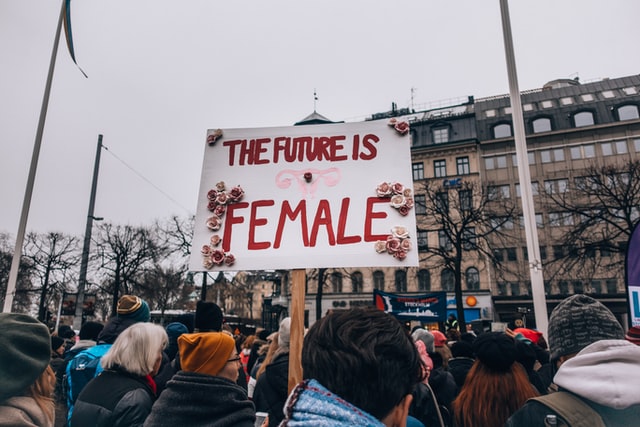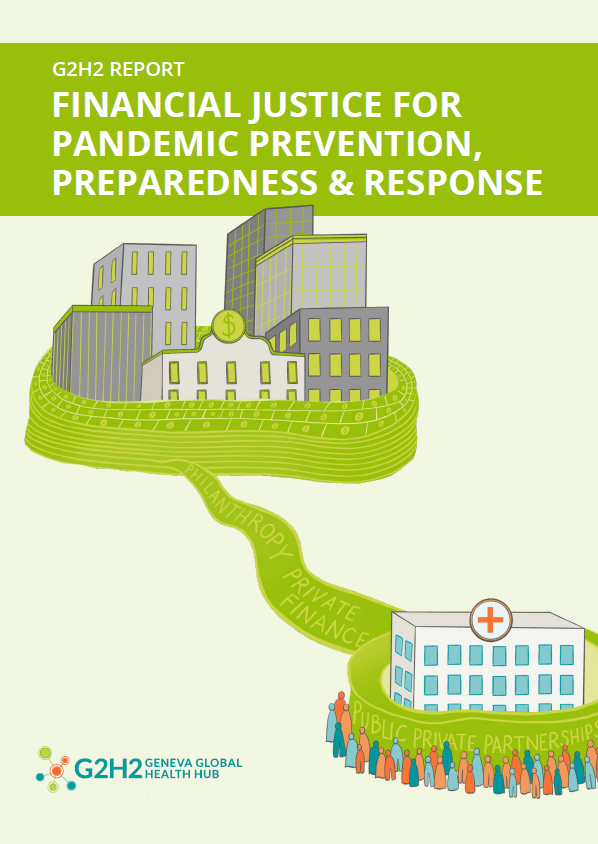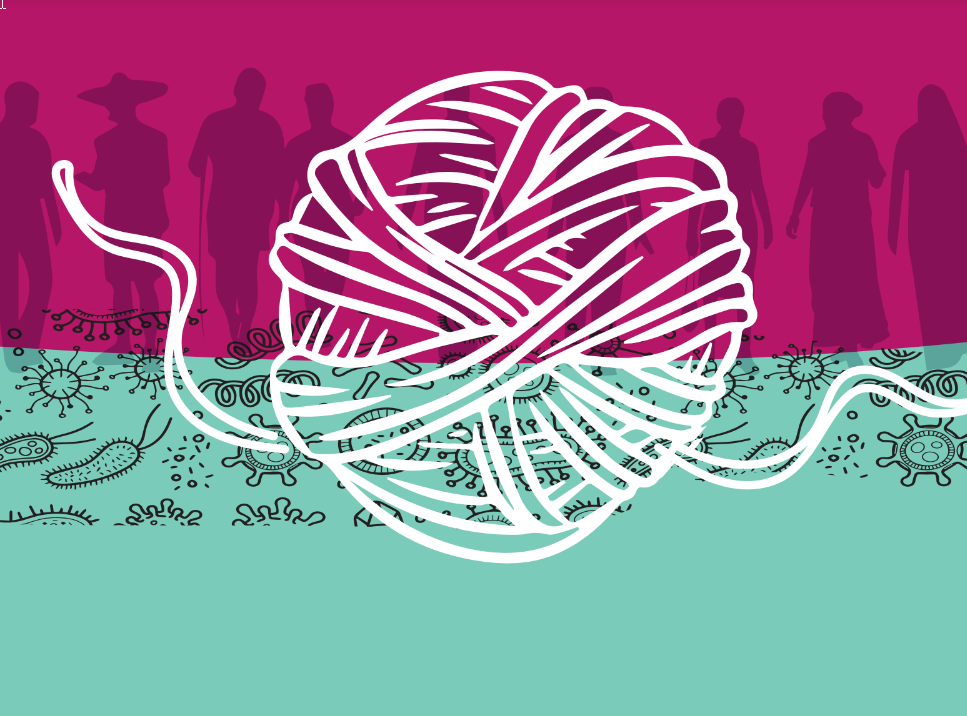Share Twitter Facebook Email Copy URL
It is time for individuals in all their diversity to have autonomy over their sexuality, health care, contraception and sexual choices
For more than a decade, the evolution from ‘international health’ to ‘global health’ has implied conceptualising a universal health system able to improve basic universal healthcare.[1] However, this model seems beholden to established power relationships when it comes to both the decision-making architecture of global health and the identities of its advocates and users. These elements are intrinsically connected to gender power relations and intersectionality that, if overlooked, will obscure differences through mainstreaming discourses about global health which become rhetorical.
Despite the egalitarian aims inherent in global health (equal participation of lower income countries), its development has still been influenced by colonial dynamics. Recent studies are exploring colonial power dynamics in the role of donors, international agencies, academic and policy research institutes in global health which involve deracialising discourses and practices.[2] A process that does not take place without conflictive power dynamics.[3]
In other words, while the scope of global health is to emphasise empowerment, equality and equity, including in partnership[4], a clearer and stronger focus on addressing inequalities based on gender and intersectional determinants not only between countries but also within countries is a prerequisite to achieving this objective.
Why maintreaming gender and intersectionality in global health matters?
Gender issues determine the way our lives are shaped, and how we interrelate in society and the environment. Our gender characteristics are intertwined with other intersecting social determinants such as where we were born, our age, ethnicity, religious and political belief, disability, citizenship, and health status, as well as to socio-political factors such as class or race. Gender and intersecting social determinants are root causes of health inequality and barriers to healthcare. Two cases in point are the sphere of sexual and reproductive health and rights, and the Covid-19 pandemic.
Reproductive health self-determination implies that individuals, in all their diversity, are able to decide autonomously over their sexuality, healthcare, contraception, and sexual choices. Today, sexual and reproductive health and rights are a reality for only 55 per cent of women worldwide.[5] Discriminatory gender norms and gender inequality compromise access to sexual and reproductive healthcare and prevent governments from promulgating laws to protect sexual and reproductive health and rights. Such discrimination and inequality is also the cause of gender-based violence, which is itself a global pandemic [6]&[7] and includes female and intersex genital mutilation and child and forced marriage.[8] In many contexts, non-binary people, people expressing diverse sexual identities and characteristics[9] and people with HIV/AIDS experience heightened discrimination in treatment by medical professionals and in access to medical services.7 Because of the existence of social and political paradigms that discriminate on the basis of gender, these people are made visible mainly through the work of civil society, international organisations and likeminded donors. However, it only takes one political change for the work of these actors and the health of the people they support to be put at risk. This is, for example, what happened in 2017 when the U.S. administration reinstated the Global Gag Rule[10] which, backed by the conservative anti-choice movement in the country, involved a dramatic cut-off of funds to sexual and reproductive health and rights, affecting 32 countries and 53 healthcare projects worldwide.

Photo: Lindsey LaMont / Unsplash
The Covid-19 pandemic has served to underline how important the pursuit of gender equality across the globe is, as it emphasised the ‘gender health paradox’ in light of the biological, social, economic and public policy pathways that shape gender-based inequalities in health.[11] Power relations based on gender and intersectional inequalities have come to the fore worldwide in the ways in which women, migrants, gender diverse people, people with disabilities or with HIV/AIDS are disadvantaged by the global health security policies and practices.[12] Covid-19 has lifted the veil on the role of women in global health, as they predominantly occupy unpaid roles as caregivers and health workers covering lower paid, and less influential positions. The pandemic exacerbated rampant domestic violence and forced women to desperate coping measures as heads of households with reduced or no income. It put further strain on migrant and refugee women’s access to healthcare and livelihoods, particularly where they are left out of the response and social safety nets.
Why global health needs feminism?
The colonial origins that remain in global health impede its ability to address inequalities consistently because its prime concern is to homogenise public health systems rather than to diversify their services and practices. The primacy of healthcare must be ensured by decentralising services and breaking down gender hierarchies, by recognising the different needs but also the knowledge and contributions of women and men, in all their diversity, to global health. Women and distinct communities having specific health skills and knowledge should be strengthened as agents of public health instead of being implicitly requested to provide care and domestic labour that remain invisible and unpaid.[13]
For a gender transformative leadership in global health
Scientific research shows the predominance of actors from high-income countries in global health research and leadership. This trend should be reversed urgently. Research should be accessible to all and the methods for validating it should be standardised, not knowledge.
There is a need for feminist and inclusive leadership to promote gender-transformative legislation, policies and programmes to enhance healthcare for all, based on evidence from gender data and statistics. This includes more presence of women, non-binary and diverse gender identities in decision-making and research on global health.
For a more inclusive and gender-responsive global health system
Civil society and women’s organisations are key players in the right to health. Their inclusion in both governance and health research should be the norm. Global Health 50/50[14] and Women in Global Health[15] are global movements researching and advocating for civil society diversity and inclusivity. Their initiatives have led to an improvement in the commitment to gender equality of their members from 55 per cent in 2018 to 79 per cent in 2021. These commitments include workplace gender equality, diversity and inclusion, sexual harassment, parental leave, governing board diversity and inclusion policies.
From global health to planetary health
The pandemic we are experiencing has exposed the inescapable interrelationship between human health, climate change and environmental health. The inequalities within these domains are experienced particularly by the most vulnerable and discriminated against people. We can no longer ignore that we are inseparable from the environment we inhabit. Our health and that of our planet are interdependent. The eco-feminist movement has been reminding us of this for several decades. It is therefore perhaps time to make another shift to achieve healthcare and health justice at once: from global health to planetary health.
Carla Pagano is an international expert in gender equality and human rights and a feminist activist. She has been working for 24 years in gender governance, gender policy, qualitative research and training in many countries in the MENA region, Africa, Latin America, and Europe for the UN, the European Commission, the Italian Cooperation, Universities and consultancy firms.
[1] Boyle CF, Levin C, Hatefi A, et al. Achieving a “Grand Convergence” in Global Health: modelling the technical inputs, costs, and impacts from 2016 to 2030. PLoS One 2015.
[2] Chaudhri MM, Mkumba L, Raveendran Y, Smith RD. Decolonising global health: beyond ‘reformative’ roadmaps and towards decolonial thought. BMJ Global Health. BMJ Glob Health. 2021; 6(7): e006371. Published online 2021.
[3] Rasheed Muneera A. Navigating the violent process of decolonisation in global health research: a guideline. The Lancet, Global Health; Volume 9, Issue 12, E1640-E1641, December 2021.
[4] Kristy C. Y. Yiu, MSc, Eva Merethe Solum, MSc, Deborah D. DiLiberto, PhD, and Steffen Torp, PhD. Comparing Approaches to Research in Global and International Health: An Exploratory Study. Annuals of Global Health 2020; 86(1): 47. Published online, 2020 Ap.
[5] As only 71 per cent of countries guarantee access to overall maternity care, only 75 per cent legally ensure full and equal access to contraception, only about 80 per cent have laws supporting sexual health and well-being, and only about 56 per cent have laws and policies supporting comprehensive sexuality education. See: UNFPA, State of World Population 2021. My Body Is My Own. Claiming the Right to Autonomy and Self-Determination.
[6] Editorial. Violence against women: tackling the other pandemic. The Lancet Public Health, Volume 7, issue 1, E1, January 01, 2022.
[7] On average, 35 per cent of women have experienced violence in their lifetime; in some countries, this rises to 70 per cent. See: World Health Organization (2019): Violence against women. Intimate partner and sexual violence against women. Evidence brief.
[8] Each year, over 4 million girls are at risk of Female Genital Mutilation while no comprehensive data are available for Intersex Genital Mutilation.
[9] E.g., Lesbian, Gay, Bisexual, Transgender, Intersex, Queer and other identities (LGBTIQ+).
[10] The Global Gag Rule or Mexico-City Policy bars all international NGOs from receiving US financing if they do not certify that they will not provide, counsel, or refer for abortion services, even if legal as per national law, necessary to save the mother’s life, and financed by other funds. See: https://www.ippf.org/global-gag-rule
[11] Bambra C., Albani V., Franklin P. COVID-19 and the gender health paradox. Scandinavian Journal of Public Health. 2021 Feb; 49(1): 17-26.
[12] Wenham C. Feminist Global Health Security. Oxford Scholarship Online: May 2021. DOI:10.1093/oso/9780197556931.001.0001
[13] Sara E Davies, Sophie Harman, Rashida Manjoo, Maria Tanyag, Clare Wenham. Why it must be a feminist global health agenda. Lancet 2019; 393: 601–03



